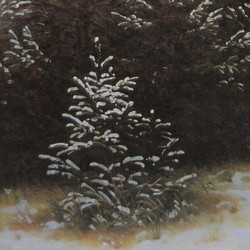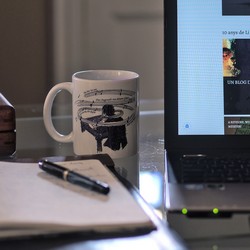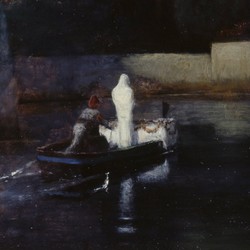- Details

"Cherchez la femme". This phrase, originally in a novel by Alexandre Dumas, was successfully adopted by the classical detective novel and the film noir in the 1940s: if you want to solve a mystery, if you intend to know why a man behaves as he behaves, find the woman behind him. In other words, the world is full of good men manipulated by evil women. Dumas wrote the sentence, but the idea is older, and the ballad world is also full of these stories; for instance, a few weeks ago we listen [...]
- Details

Music has a great evoking power, that's something that you, my dear reader, know well. Every so often, we hear unexpectedly a melody that we haven't heard for a long time; it transports us to a special time, reminds us of somebody or revive a feeling. Heinrich Heine also knew this evokin power, as Dichterliebe's poet did.
- Details

I think I told you I didn't want to start this blog. I had just given my first course of Lied, whose title stated my intentions: “Lied, a close genre,” and the descriptor just clarified: “Lied is often considered a difficult musical genre, far from our day to day. But we shouldn't forget that it tells us about life” Lied tells us about life, of course; its language is different from ours, but, if we feel close to Shakespeare's works, I don't see why shouldn't we feel close to a poem written 200 years ago. And an aim of that course, of all [...]
- Details

A few months ago, I talked about the well-known importance of networking, personalized in composer Josephine Lang; an easy excuse to hear one of her beautiful songs. Back then, I promise you the second part of this 19th-century networking story, that will serve us again to listen to the composer.
- Details

1888 was a key year for Hugo Wolf. We Lied lovers know it was when the longest, more creative time of Wolf began, two years during which he wrote more than 160 Lieder. But it was also the year that saw (at last!) his first published works.













